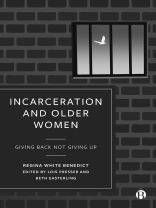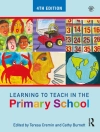Generativity or ‘giving back’ is regarded as a common life stage, occurring for many around middle age. For the first time, this book offers qualitative research on the lives and social relationships of older imprisoned women. In-depth interviews with 29 female prisoners in the south-eastern United States show that older women both engage in generative behaviours in prison and also wish to do so upon their release.
As prisoners continue to age, the US finds itself at a crossroads on prison reform, with potential decarceration beginning with older prisoners. The COVID-19 pandemic has led many to consider how to thrive under difficult circumstances and in stressing the resilience of older incarcerated women, this book envisions what this could look like.
İçerik tablosu
1. Ageing Less than Gracefully
2. Welcome to My Home: Cell Block D
3. Older, Wiser, and Incarcerated
4. A Positively Negative Experience
5. Parenting Behind Bars
6: Ageing in Their Own Words: Peace of Mind, Body, and Circumstances
7. ‘Usefulness’ of a ‘Useless’ Population
8. Why Not Give Them a Chance?
Afterword
Appendices
Yazar hakkında
Regina White Benedict, Ph D (1976-2021) was Assistant Professor and Coordinator of the Criminal Justice Program at Maryville College, a program she founded. With a passion for social justice, Benedict studied incarceration as a gendered experience, focusing on the complex identities and lives of older female inmates from a feminist perspective.
The Dr. Regina White Benedict Scholarship at Maryville College was established in 2022 to support students of criminal justice, especially non-traditional women working toward their college degree at Maryville.
Lois Presser is Professor of Sociology at the University of Tennessee.
Beth Easterling is Visiting Associate Professor of Criminal Justice at Roanoke College.












